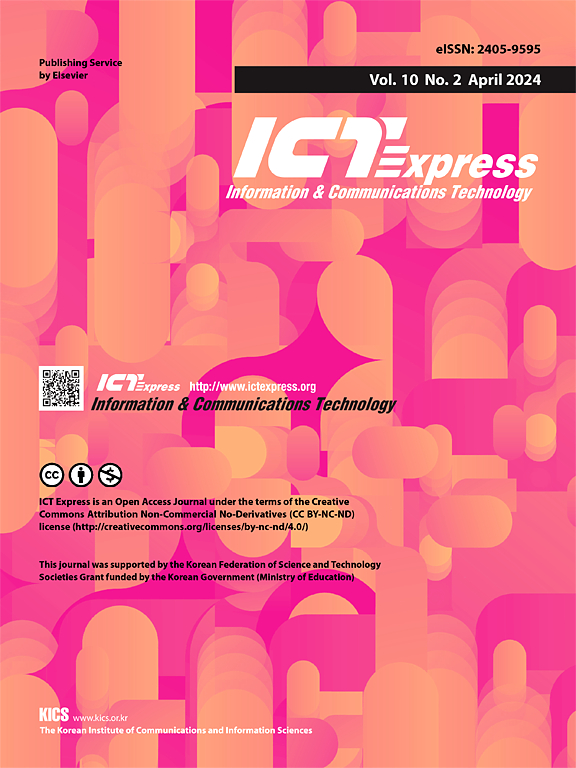Design and implementation of underwater optical wireless communication prototype system supporting automatic beam alignment
IF 4.1
3区 计算机科学
Q1 COMPUTER SCIENCE, INFORMATION SYSTEMS
引用次数: 0
Abstract
We implement a prototype of the underwater optical wireless communication (UOWC) system, incorporating an adaptive optical beam alignment mechanism to ensure the seamless alignment of the optical beam between the transmitter and receiver. In this system, the transmitter, utilizing a laser diode as an optical source, leverages the camera’s object recognition capability to ascertain the position of the receiver, which may experience movement and shaking due to various external factors. However, the underwater condition poses challenges to camera visibility. To address this issue, a green light-emitting diode (LED) is installed on the receiver to make it easier for the transmitter to locate the position of the receiver within the camera image. The detected LED position is converted into angular data, enabling the operation of a servo motor to adjust the transmitter’s beam pointing, via a 2-axis servo motor pan–tilt system. Moreover, in the proposed UOWC prototype system, we employ the timer interrupt algorithm integrated with a real-time operating system and the direct register access method for general-purpose input/output on the NVIDIA Jetson Nano. This strategic combination facilitates the reduction of errors within the timer interval cycle between the transmitter and receiver, optimizing communication reliability through precise control of timer interrupts. To assess the system’s performance, extensive experimental tests are conducted in a large water tank.
支持波束自动对准的水下光无线通信原型系统的设计与实现
我们实现了水下光学无线通信(UOWC)系统的原型,其中采用了自适应光束对准机制,以确保发射器和接收器之间的光束无缝对准。在该系统中,发射器使用激光二极管作为光源,利用摄像头的物体识别能力来确定接收器的位置,而接收器可能会由于各种外部因素而发生移动和晃动。然而,水下环境对照相机的可视性提出了挑战。为了解决这个问题,接收器上安装了一个绿色发光二极管(LED),使发射器更容易定位接收器在摄像机图像中的位置。检测到的发光二极管位置被转换成角度数据,从而使伺服电机能够通过双轴伺服电机云台系统调整发射器的光束指向。此外,在拟议的 UOWC 原型系统中,我们采用了与实时操作系统集成的定时器中断算法,以及英伟达 Jetson Nano 上通用输入/输出的直接寄存器访问方法。这一战略组合有助于减少发送器和接收器之间定时器间隔周期内的误差,通过精确控制定时器中断优化通信可靠性。为了评估该系统的性能,在一个大型水箱中进行了广泛的实验测试。
本文章由计算机程序翻译,如有差异,请以英文原文为准。
求助全文
约1分钟内获得全文
求助全文
来源期刊

ICT Express
Multiple-
CiteScore
10.20
自引率
1.90%
发文量
167
审稿时长
35 weeks
期刊介绍:
The ICT Express journal published by the Korean Institute of Communications and Information Sciences (KICS) is an international, peer-reviewed research publication covering all aspects of information and communication technology. The journal aims to publish research that helps advance the theoretical and practical understanding of ICT convergence, platform technologies, communication networks, and device technologies. The technology advancement in information and communication technology (ICT) sector enables portable devices to be always connected while supporting high data rate, resulting in the recent popularity of smartphones that have a considerable impact in economic and social development.
 求助内容:
求助内容: 应助结果提醒方式:
应助结果提醒方式:


